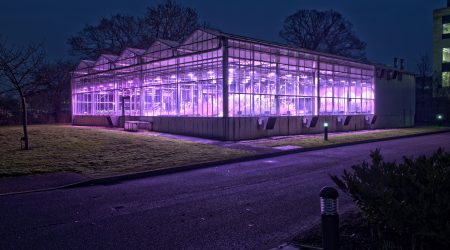2020 has already demonstrated the urgent need for science to play a key role in developing solutions to global challenges.
In the UK we faced floods in March and drought in May, disrupting crop production up and down the country. We are living through a global pandemic, caused by a virus that rapidly emerged as a threat.
In collaboration with The Sainsbury Laboratory, we have launched our new joint vision, Healthy Plants, Healthy People, Healthy Planet, or HP3, an ambitious plan to use the power of plant and microbial science to overcome three key challenges. To read more about the challenges and our vision, or visit our dedicated website, hp3.org.
This edition of Advances also showcases some of the recent research that is working to understand the relationship between plants, microbes and the environment.
We take an in-depth look at how our scientists are unpicking these intricate relationships, ultimately to enable more resilient future-proof crops to be grown. Crops which can survive the extremes of rainfall and temperature that are becoming more common as a result of the climate emergency.
In this issue we hear from Professor Graham Moore, academic lead of the Designing Future Wheat programme. Wheat is the most widely grown cereal crop on the planet. Its complex genome has for many years proven to be a barrier to developing new wheat varieties. Recent breakthroughs mean that scientists now have a set of resources that enable them to work directly with this complex crop.
Healthy People, Healthy Plants, Healthy Planet
We have a rapidly closing window of time to address three challenges facing society and the planet that sustains us.
The three global challenges of sustainably feeding a growing population, combating new and emerging global health threats and climate change call for new ways of thinking. This is a critical moment to come together to achieve a collective goal.
Damaging pathogens could just as easily emerge in the form of crop diseases or human infections by bacteria with antimicrobial resistance, putting our food security and health at enormous risk.
The global scientific response to the COVID-19 pandemic has shown that transformational collaboration at pace is possible.
There are a number of near and very real threats facing humankind and the planet more widely. Plant and microbial science has the potential to overcome them.
Over the past 110 years, our transformative discoveries in plant science, genetics, microbiology and plant-microbe interactions have had a huge impact, but rapid advances in technology, scientific practice and computing mean there is even greater potential.
Healthy Plants, Healthy People, Healthy Planet (HP3) articulates our vision for the future of plant and microbial science and outlines our response to the challenges that humanity and our environment face.
It is an ambitious, collaborative call to action. We must start providing the solutions so desperately needed in a world that faces a rapidly changing climate, massive losses in biodiversity, a growing global population to feed and the urgent need to decarbonise agricultural practices.
All of these challenges require science to play a critical role in delivering solutions. HP3 will secure a safer, healthier and more sustainable future through the power of plant and microbial science; a future where the John Innes Centre and The Sainsbury Laboratory continue to uncover and understand fundamental biological mechanisms, and then use this knowledge to solve global challenges.
This vision means working together in new, collaborative, interdisciplinary and technology-driven ways, aiming to tackle and overcome the biggest threats facing the world, making the scientific potential of today meet the global challenges of tomorrow.
Through this strategy, and by developing a UK hub for plant and microbial science, we can accelerate progress and provide pivotal resource for developing solutions to these three global challenges.
HP3 is a vision to unite the UK’s capability in plant and microbial science and to open up our research infrastructure to industry and academia. It represents an exciting step change in the capabilities and ways of working in this field. HP3 describes our vision to revolutionise plant and microbial science, a vision that is underpinned by our ambition to establish the very best plant and microbial science laboratory infrastructure anywhere in the world.
Together with The Sainsbury Laboratory we are seeking capital investment in cutting-edge future-proofed facilities to create a UK hub for world-leading plant and microbial research that will supercharge national ability to translate scientific knowledge in practical solutions.
We are working with UKRI’s Biotechnology and Biological Sciences Research Council (BBSRC) to develop the case for investment in our new infrastructure, and are seeking additional capital investment alongside public funding to enable us to realise our exciting and ambitious vision.





